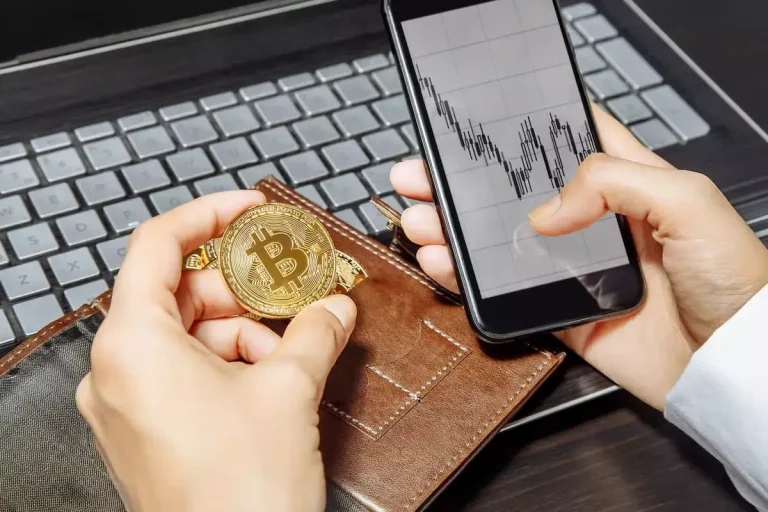In this comparability, we’ll discover the difference between centralized and decentralized crypto exchanges, revealing their internal workings, advantages, disadvantages and what type of exchange to choose. Sophisticated DEXs provide you with a lot of management over the way you participate in a liquidity pool. For instance, you may make tokens available only inside a specific worth vary. The AMM approach means you’ll be able to be part of liquidity swimming pools by lending funds to them.
- A DEX (decentralized exchange) is a peer-to-peer marketplace where customers can commerce cryptocurrencies in a non-custodial method without the need for an middleman to facilitate the switch and custody of funds.
- Through this weblog, you could possibly hyperlink to different web sites which aren’t beneath the management of the Algorand Foundation.
- For example, the DEX’s matching engine could be hosted on centralized servers, or the development team might need administrative access to the DEX’s smart contracts and potential use of subpar token bridging infrastructure.
- In the blockchain, transactions are recorded in blocks and verified via automated processes.
Given the transparent nature of blockchain transactions, DEX trades are prone to being front-run by arbitrageurs or MEV bots seeking to use customers. Like high-frequency traders in conventional markets, these bots capitalize on market inefficiencies by paying higher transaction fees and optimizing network speed. Users of DEXs sometimes encounter two types of fees—network charges and trading fees. Decentralized exchanges make a profit via trading fees and their native tokens if they have any. It’s essential to know which DEXs are essentially the most reliable and widely used prior to using any decentralized change. Numerous decentralized exchanges are available, such as Uniswap, Curve, and Balancer.
Cexs
Using a decentralized trade has many advantages in comparability with a centralized one. Decentralized exchanges (DEXs) present extra privateness and safety as they do not retailer property. What’s more, decentralized exchanges present entry to a broader range of digital assets as they allow trading of recent tokens. The DEX is becoming more and more well-liked within the crypto world because of its rising reputation, which appeals to both crypto merchants and traders.
On the other hand, DEXs operate instantly on blockchain networks, enabling peer-to-peer trading without an middleman. While DEXs may have decrease liquidity and a much less intuitive person interface than CEXs, they provide a decentralized and censorship-resistant strategy to buying and selling, aligning with the core ideas of blockchain expertise. A decentralized exchange (DEX) is a type of cryptocurrency change that operates without the necessity for a central authority or middleman.
How Decentralized Finance (defi) Works
Instead, customers management their personal keys and commerce instantly with other customers. Fully on-chain order e-book DEXs have been historically much less frequent in DeFi, as they require each interaction within the order guide to be posted on the blockchain. This requires both far larger throughput than most present blockchains can deal with or significant compromises in network safety and decentralization. As such, early examples of order guide DEXs on Ethereum had low liquidity and suboptimal person expertise. Even so, these exchanges were a compelling proof of idea for a way a DEX might facilitate trading utilizing good contracts.
Whereas in centralized exchanges (CEXs), similar to Coinbase or Binance, the platform facilitates buying and selling using the interior matching engine of the change, DEXs execute trades via good contracts and on-chain transactions. Furthermore, DEXs permit users to maintain full custody of their funds through their self-hosted wallets during trading. DEXs supply a big degree of determinism by leveraging blockchain expertise and immutable smart contracts. Unlike centralized exchanges like Coinbase or Binance, which depend on the exchange’s inner matching engine, DEXs execute trades through sensible contracts and on-chain transactions.
Every DEX crypto is intended to deliver the advantages of decentralization to crypto shopping for, selling, and portfolio administration. Despite the growing recognition of DEXs, some markets inside them endure from poor liquidity. Decentralized Exchanges (DEXs) have opened up buying and selling and liquidity provision to a wider audience, guaranteeing enhanced transparency and unrestricted entry. Still, DEXs do come with their own set of potential risks, which embrace the next.
Defi
DEXs can even reduce a number of the systemic risks of the blockchain trade by decreasing the amount of capital concentrated in the wallets of a small number of centralized exchanges. In 2014, the Mt. Gox centralized change dealt with a significant portion of all Bitcoin trading quantity before what is a decentralized crypto exchange it abruptly ceased operations amid the loss of hundreds of hundreds of bitcoin. Since DEX trades are facilitated by deterministic good contracts, they carry sturdy guarantees that they will execute in precisely the way the user meant, with out the intervention of centralized events.

DeFi applications present an interface that automates transactions between customers by giving them financial choices to select from. For example, if you want to make a mortgage to somebody and charge them curiosity, you’ll have the ability to select the choice https://www.xcritical.com/ on the interface and enter phrases like interest or collateral. If you want a mortgage, you’ll have the ability to search for providers, which might vary from a financial institution to an individual who may lend you some cryptocurrency after you agree on phrases.
Additionally, because DEXs are run on decentralized platforms, users are solely answerable for the safety of their non-public keys and funds. There are several advantages to using decentralized exchanges, including decreased safety dangers, anonymity and privacy, decreased counterparty risks, and resistance to censorship. Despite differences in operational construction, all decentralized exchanges offer customers with anonymity and privacy that might be missing from more conventional exchanges. The basic method to cryptocurrency exchanges comes from centralized exchanges (CEXs). These exchanges function intermediaries, preserving users’ funds protected and carrying out trades for them.
Unlike order e-book DEXs, the place a buyer must wait for their order to match a vendor’s, an AMM’s smart contract immediately units the change price. This benefits customers in terms of speedy transactions and permits liquidity providers (those who deposit into the AMM’s liquidity pool) to earn passive earnings by way of buying and selling charges. This combination of instant liquidity and accessible liquidity provision has led to a surge in creating new tokens via AMMs, focusing on specific use circumstances like stablecoin swaps. For a more complete understanding of AMMs, you can discover this detailed information on their operation. To wrap it up, decentralized exchanges are gaining recognition in the crypto and DeFi world. Cryptocurrency exchanges provide advantages corresponding to no want for a central authority, and improved access to financial services in comparability with traditional centralized exchanges.

Centralized and decentralized exchanges, often referred to as CEXs and DEXs, respectively, represent two distinct approaches to facilitating these transactions. A DEX aggregator is a platform or software that allows users to entry a quantity of decentralized exchanges in one place. Instead of manually checking each particular person DEX, aggregators consolidate liquidity from varied exchanges, offering users with a unified view and the ability to match costs and execute trades throughout totally different DEXs.
Instead of relying on a central authority to carry and manage person funds, DEXs make the most of sensible contracts, that are self-executing programs running on a blockchain. These good contracts act as the backbone of the exchange, enabling safe and clear transactions. When you wish to commerce on a DEX, you typically connect your digital pockets to the platform.

Essentially, an AMM functions like an automatic dealer, always able to quote a value for a pair of assets. Instead of counting on an order book, AMMs function utilizing a liquidity pool the place customers can trade their tokens, and the price is decided by an algorithm based on the ratio of tokens within the pool. One of the principle benefits of DEXs is the excessive degree of determinism achieved by using blockchain expertise and immutable good contracts.
Since DEXs are non-custodial, traders don’t have to give up custody of their non-public keys in order to conduct transactions. Instead, DEXs interact with externally saved wallets, and trades through self-executive good contracts. An order book DEX is similar to a standard change where consumers and sellers place orders that are matched by an order guide. They rely on an order-matching mechanism to discover out the value and execute trades. The benefit of an order e-book DEX is that users can place limit orders, allowing them to have higher control over the buy and promote price of an asset. Centralized exchanges operate as centralized entities, meaning they manage user accounts and control private keys.
There are a quantity of DEX designs, every providing a different benefits and trade-offs in phrases of feature-sets, scalability, and decentralization. The two most typical types are order guide DEXs and automatic market makers (AMMs). DEX aggregators, which parse by way of multiple DEXs on-chain to seek out the best price or lowest gas price for the user’s desired transaction, are also a broadly used category. At a traditional cryptocurrency exchange, you start by creating an account and satisfying the site’s Know Your Customer situations. After you have deposited funds or related your present crypto pockets, you can buy, promote, and commerce cryptocurrencies, making a quick transaction or constructing a long-term portfolio. Liquidity holds such significance that DEXs often offer incentives and a share of buying and selling fees to encourage participation in liquidity pools.
Additionally, hybrid order book designs have become extra well-liked, the place the order e-book administration and matching processes happen off-chain whereas the settlement of trades happens on-chain. Decentralized exchanges (DEXs) sustain vigorous liquidity ranges by rewarding individuals who contribute liquidity with a portion of the trading fees. Trustless transactions are made potential by DEXs’ use of good contracts to carry out trades and document them to the blockchain. Furthermore, since DEXs do not deposit your assets, hackers are less more doubtless to target them. There are two main types of exchanges, centralized exchanges and decentralized exchanges.
